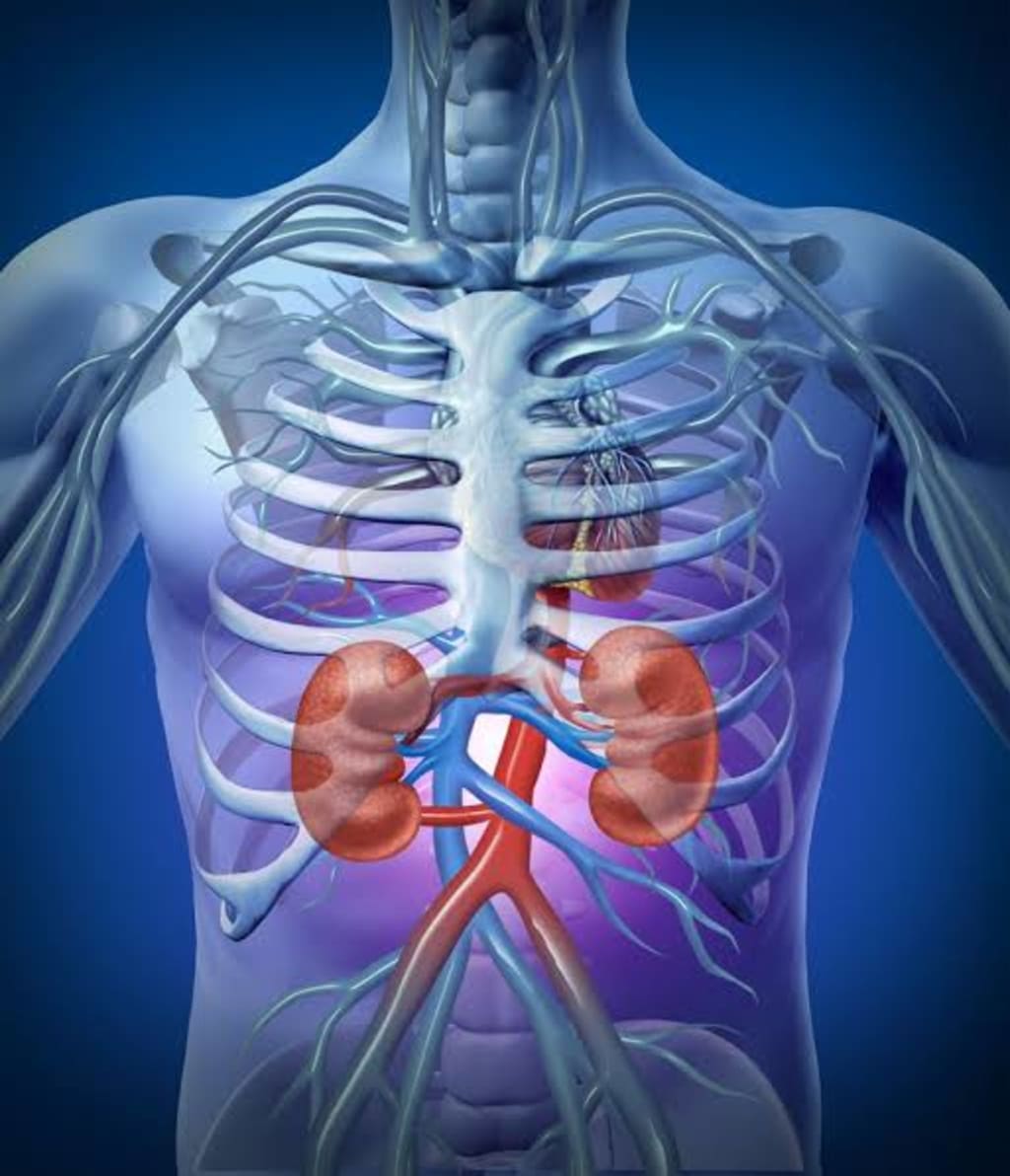
The kidneys are two bean-shaped organs located on either side of the spine, just below the rib cage. They are responsible for filtering waste and excess fluids from the blood, which are then excreted as urine. Kidney stones are hard deposits of minerals and salts that form inside the kidneys or urinary tract. They can be very painful and can cause a range of symptoms, including severe pain in the back, side, or lower abdomen, nausea, vomiting, and difficulty urinating. Treatment for kidney stones depends on the size and location of the stone, but may include pain medication, hydration, and in some cases, surgery. It's important to drink plenty of water and avoid foods that are high in oxalates, such as spinach, rhubarb, and chocolate, to help prevent kidney stones from forming.WHATS KILLING YOUR KIDNEY?
The speed at which young people suffer from kidney disease is alarming.
★SO HERE ARE THE 6 MAIN CAUSES OF KIDNEY DISEASE:
1. Delay going to the bathroom. Keeping your urine in your bladder too long is a bad idea. A full bladder can cause bladder damage. The urine left in the bladder multiplies the bacteria quickly. Once the urine returns to the ureter and kidneys, toxic substances can lead to kidney infections, then urinary infections, then nephritis and even uremia. When nature calls - do it as soon as possible.
2. Eat too much salt. You should not eat more than 5.8 grams of salt a day.
3. Eat too much meat. Too much protein in your diet is harmful to your kidneys. Protein digestion produces ammonia, a very destructive toxin for the kidneys. More meat equals more kidney damage.
4. Drink too much caffeine. Caffeine is a component of many sodas and soft drinks. This increases your blood pressure and your kidneys begin to suffer. So you should reduce the amount of coke you drink every day.
5.rink enough warm water. Our kidneys must be well hydrated to perform their duties well. If we do not drink enough, the toxins can begin to accumulate in the blood because there is not enough fluid to drain them ,The kidney is a vital organ in the human body that plays a crucial role in filtering waste products from the blood and regulating the body's fluid balance. However, like any other organ, the kidney is also susceptible to various diseases that can affect its functioning. In this article, we will discuss some of the common kidney diseases and ways to prevent them.
One of the most common kidney diseases is chronic kidney disease (CKD), which is a long-term condition that affects the kidneys' ability to filter waste products from the blood. CKD can be caused by various factors, including high blood pressure, diabetes, and certain medications. Symptoms of CKD include fatigue, swelling in the legs and ankles, and difficulty concentrating.
Another common kidney disease is kidney stones, which are hard deposits of minerals and salts that form in the kidneys. Kidney stones can cause severe pain in the back, side, and groin, as well as nausea and vomiting. They can be caused by various factors, including dehydration, a diet high in salt and protein, and certain medical conditions.
Urinary tract infections (UTIs) can also affect the kidneys, especially if left untreated. UTIs are caused by bacteria that enter the urinary tract and can cause symptoms such as pain and burning during urination, frequent urination, and fever.
To prevent kidney diseases, it is essential to maintain a healthy lifestyle. This includes drinking plenty of water to stay hydrated, eating a balanced diet that is low in salt and protein, and exercising regularly. It is also important to manage any underlying medical conditions, such as high blood pressure and diabetes, that can increase the risk of kidney disease.
If you are at risk of developing kidney disease, your doctor may recommend regular kidney function tests to monitor your kidney health. These tests can help detect any problems early on, allowing for prompt treatment and better outcomes.
In conclusion, the kidney is a vital organ that plays a crucial role in maintaining the body's overall health. However, like any other organ, the kidney is also susceptible to various diseases that can affect its functioning. By maintaining a healthy lifestyle and managing any underlying medical conditions, you can reduce your risk of developing kidney disease and ensure that your kidneys stay healthy and functioning properly.
hroughheidneysinkorehansesofa
tereatmenteatllourealthprobl





Comments
There are no comments for this story
Be the first to respond and start the conversation.